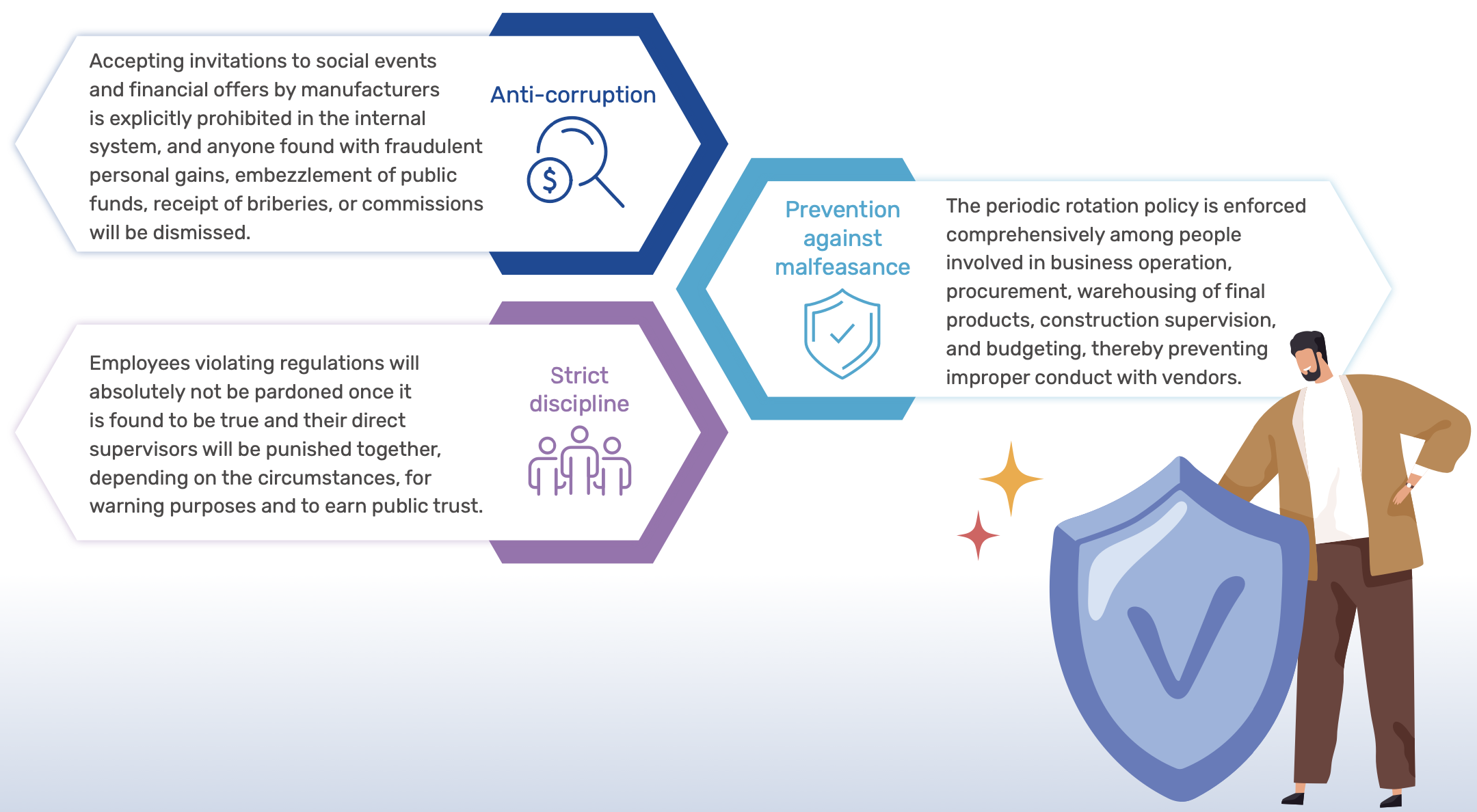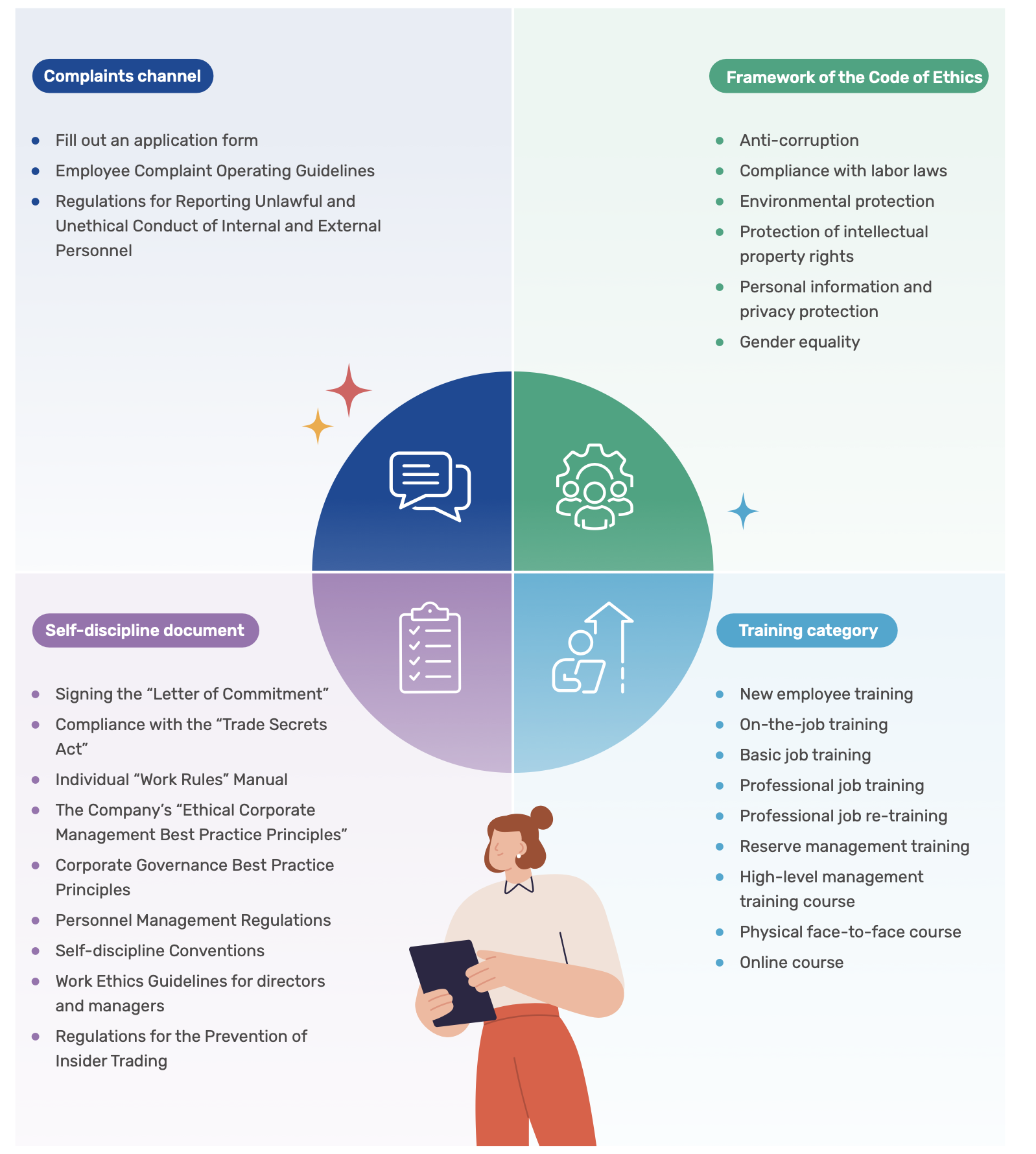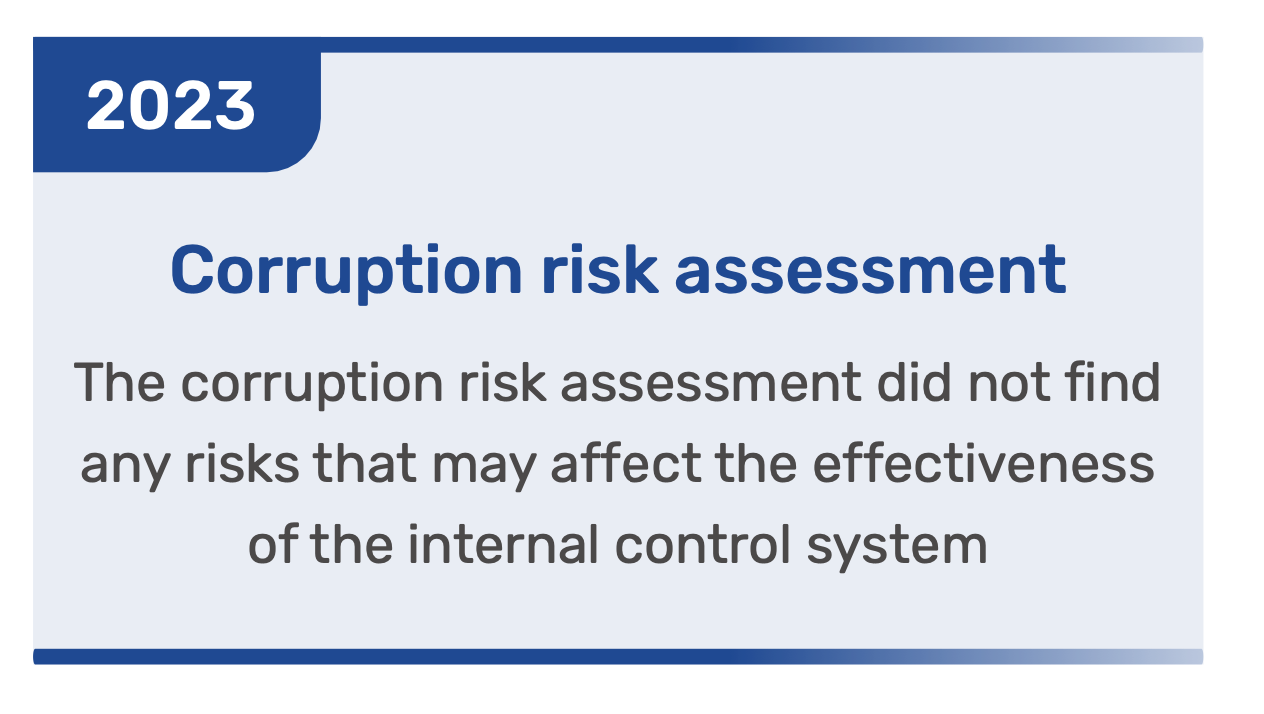
 New Path to Sustainability
New Path to Sustainability Corporate Governance
Corporate Governance Code of Conduct, Anti-corruption Policy, Internal Audit System
Code of Conduct, Anti-corruption Policy, Internal Audit System 
 New Path to Sustainability
New Path to Sustainability Corporate Governance
Corporate Governance Code of Conduct, Anti-corruption Policy, Internal Audit System
Code of Conduct, Anti-corruption Policy, Internal Audit System Code of Conduct
We established 17 rules and regulations, including the Corporate Governance Best Practice Principles and Ethical Corporate Management Best Practice Principles based on anti-corruption, prevention against malfeasance, and strict discipline, to ensure that the business philosophy is upheld. We also organize education and training, sign self- discipline documents, and provide grievance channels in coordination. The regulations are disclosed in the corporate governance section and investor section of the Company website (http://www.fpcc.com.tw/tw/corporate/policies).
Anti-corruption Policy


Execution
Based on the policy described above, we conducted a corruption risk assessment for all of our business locations in 2023. The assessment results did not find any risks that may affect the effectiveness of the internal control system. No corruption cases were found in any locations of operations in 2023. In additional to physical courses, we further promoted online training courses and sent information on online courses to all employees, in hopes further promoting online courses.

Internal Audit
FPCC has computerized all operations, and uses technology-based management to link together six major functions, namely personnel, finance, business operation, production, materials, and engineering. The effectiveness of the internal control system is evaluated by the Board of Directors each year, and a statement of the internal control system's effectiveness is issued.
According to the 2023 audit plan approved by the Board of Directors, items to be audited include sales and receivables, purchase and payment, production, salaries and wages, financing, fixed assets, computer information, and investment in a transaction cycle – 53 items in total, in order to accomplish goals relating operational effectiveness and efficiency, reliability of financial reports, and compliance with applicable laws. Results of the actual audit showed 13 areas with deficiency and most of them had to do with documentation or incomplete data; there were no major deficiencies that affected the effectiveness of internal controls. Internal control system deficiencies and abnormalities found in the inspection were already included in the produced audit report and have been followed up periodically, and have been completed corrected as of now. The improvement rate is 100%.

Implementation Status of Internal Audits

Intellectual Property Management
The Company established a virtual laboratory and installed an R&D digital management system to accelerate the development of new high-value and differentiated products or technologies. We are actively developing Industry 4.0 and AI production, and established the "Regulations Governing Incentives for Research and Development Results of Research and Development Personnel," specifying incentives for R&D of key products and patent licensing, in order to encourage R&D personnel to actively engage in innovative R&D that will further enhance the Company's competitiveness.
With regard to patent and trademark management, the Company established "Computerized Operations for Patent and Trademark Management" to manage related applications, review, and implementation progress. This allows us to monitor the progress of patent and trademark cases, and handle extensions of period of exclusive use for trademarks according to schedule. Furthermore, the Company requires all employees to issue a statement that they will respect intellectual property rights and also provides training courses on regulations governing intellectual property rights, so as to improve employees' understanding of intellectual property rights.
The Company obtained a total of 14 trademarks (56 certificates) in 2023.